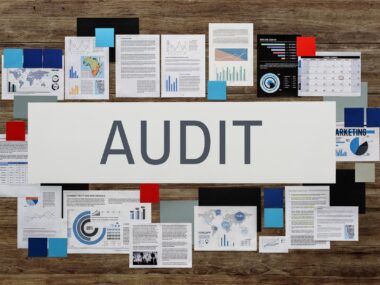Report writing keeps showing up in many freelancing quarters. It may not sound glamorous, but for African freelancers navigating diverse industries from development work to digital marketing, it’s a skill that can quietly boost your credibility, income, and client retention.
Unlike blog posts or catchy social media content, writing a report is about structure, clarity, and delivering information that drives decisions. It’s where form meets function. And the best part? You don’t need to be a technical writer to get it right. You just need to understand the format, follow a process, and know what your audience expects.
In this article, we’ll explore what makes writing a report a powerful tool for African freelancers and how you can master it to stand out in local and international markets.
What is Report Writing?
At its core, report writing is the process of documenting information in a clear, organized, and factual manner. Unlike storytelling or opinion pieces, report writing focuses on delivering accurate data, findings, or updates to help the reader make informed decisions. For African freelancers, this skill often becomes essential when working with NGOs, corporate clients, research teams, or even government agencies.
Writing a report can take many forms. You might be asked to prepare a project report summarizing progress and outcomes, a market research report analyzing consumer behavior, or a financial report detailing expenditures and projections. Each type has its own structure, but they all share a common goal: to communicate information effectively.
For freelancers offering services remotely or on-site across Africa, the ability to handle report writing tasks can set you apart from others who focus only on creative or informal content. It shows you understand professionalism, attention to detail, and the needs of serious clients who rely on reports for planning and accountability.
Mastering report writing means you’re not just a freelancer, but a trusted partner who can document impact, track performance, and support better decision-making. That’s a skill worth developing.
Why Report Writing Matters for African Freelancers
Many African freelancers focus on popular services like content creation, social media management, or graphic design. While these are valuable, few realize how much opportunity lies in professional report writing. This underrated skill is in high demand across sectors such as international development, business consulting, education, finance, and market research.
Organizations, especially NGOs and government agencies, often require detailed reports to show progress, justify funding, or document outcomes. Businesses also depend on freelancers for research summaries, feasibility reports, and performance evaluations. If you can deliver clear, concise, and well-structured reports, you become a valuable asset to any team.
Clients look for freelancers who can do more than write. They want professionals who understand structure, logic, and purpose. Report writing gives you a chance to prove that. It builds credibility, shows responsibility, and gives clients the confidence to assign more complex and higher-paying projects.
For African freelancers working remotely with international clients, report writing also helps bridge communication gaps. A well-written report shows professionalism and reliability, especially when time zones or cultural differences might create misunderstandings. With strong report writing skills, your work speaks for you even when you’re offline.
If you’re aiming to land long-term contracts, secure repeat clients, or move into higher-level freelance roles, report writing is a smart skill to sharpen.
Key Elements of Good Report Writing
To stand out as a freelancer, it’s not enough to just complete a report. You need to deliver a report that is clear, professional, and useful to the reader. Good report writing follows a structured approach and includes specific elements that make the content easy to understand and act on.
1. A Clear Structure
Most forms of report writing follow a common format: Title, Table of Contents (if lengthy), Introduction, Methodology, Findings, Conclusion, and Recommendations. Sticking to this structure helps the reader navigate the report quickly and grasp key points without confusion.
2. Clarity and Simplicity
Avoid jargon unless your audience expects it. The goal of report writing is to communicate, not to impress. Use short sentences, bullet points, and subheadings to improve readability.
3. Objectivity and Accuracy
Reports should be based on facts, data, and clear observations. Good report writing avoids emotional language and focuses on evidence. This is especially important when dealing with research or evaluation reports.
4. Visual Aids
Tables, graphs, and charts can help you present data more effectively. Visuals make complex information easier to digest and add professionalism to your report writing.
5. Proofreading and Editing
Nothing ruins a good report like spelling errors or awkward phrasing. Always review your work before submitting. Consider using tools or asking a colleague to proofread.
6. Referencing Sources
When your report includes information from external sources, always give proper credit. This adds credibility to your report writing and protects you from accusations of plagiarism.

Common Mistakes to Avoid in Report Writing
Even experienced freelancers sometimes make errors that can weaken their reports. Understanding and avoiding these mistakes is just as important as mastering the structure. Strong report writing is not just about what you include, but also about what you leave out or fix before submission.
1. Ignoring the Client Brief
Many freelancers rush into writing without fully understanding the client’s requirements. Every report writing task should begin with a careful review of the brief or instructions. Missing key details can lead to revisions or even rejected work.
2. Using Unnecessary Jargon
Technical language has its place, but overloading your report with buzzwords can confuse readers. Effective report writing prioritizes clarity. Always write with your target audience in mind.
3. Poor Formatting
Clients expect clean, consistent formatting. Messy headings, inconsistent fonts, and scattered visuals can make a report look unprofessional. A good layout is part of quality report writing.
4. Lack of Focus
Going off-topic or adding irrelevant information can distract from your report’s purpose. Stay focused on the objectives and goals outlined in the brief. Good report writing is concise and purposeful.
5. Skipping the Proofreading Stage
Submitting a report with spelling or grammar errors sends the wrong message about your professionalism. Every piece of report writing should be reviewed before delivery, no matter how confident you feel about it.

6. Copying Without Citing Sources
Freelancers sometimes lift text from websites or previous reports without attribution. This can damage your reputation and your client’s. Ethical report writing requires you to reference sources properly, especially when dealing with research or policy material.
Avoiding these mistakes will help you deliver reports that clients trust and value. It’s a simple way to build a reputation for reliable, high-quality report writing as an African freelancer.
Conclusion
For African freelancers looking to stand out in a competitive market, report writing is more than just another service. It’s a powerful tool that can elevate your work, attract high-value clients, and open doors to new industries like research, development, and consulting.
Mastering report writing helps you communicate, showcase your professionalism, and deliver value that clients can measure and trust. Whether you’re writing a project summary, an evaluation report, or a proposal, the ability to present information in a clear and structured way sets you apart from freelancers who focus only on creative content.
Start practicing today. Learn the structure, avoid common mistakes, and use the right tools to polish your work. As you improve, you’ll gain confidence and expand the kind of projects you can take on.
If you found this guide helpful, explore more resources on AfricanFreelancers.com and join a growing network of freelancers across the continent. Your next big opportunity might just begin with better report writing.





